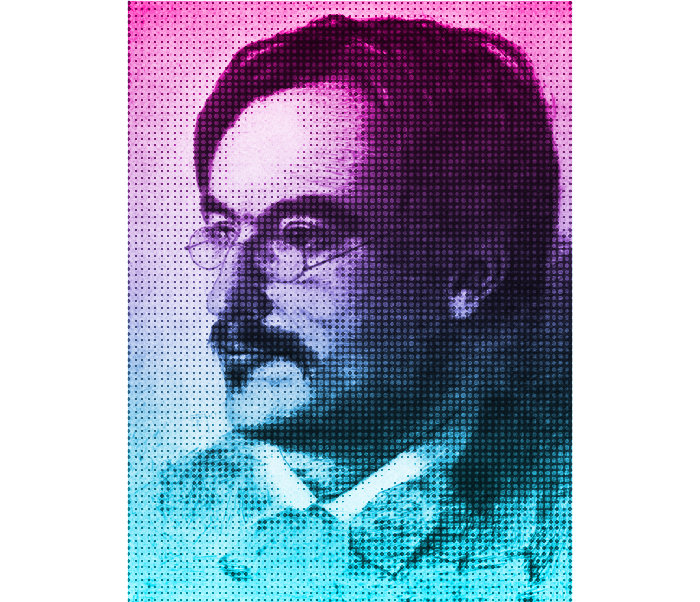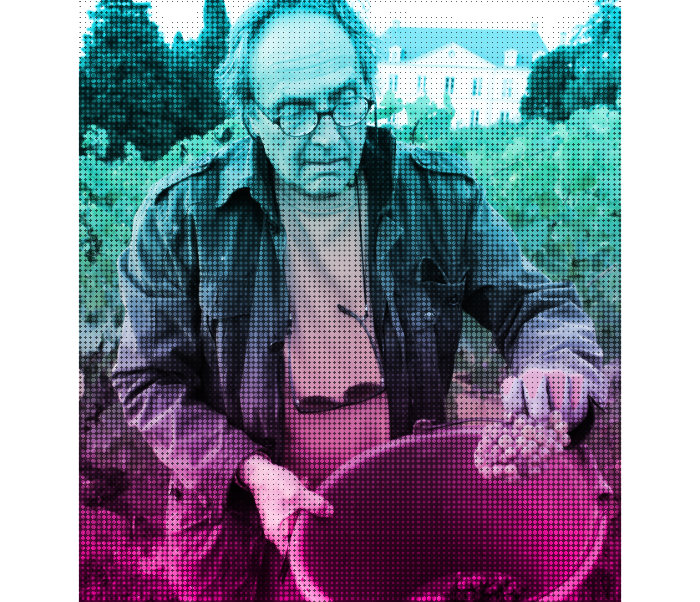The New Gastronome
Enhancing Terroir with Biodynamics
Preserving Wine Identity Through Innovation
by Morgana Germanetto
by Morgana Germanetto

These days, it’s often cool to sit at the terrace of the nearest bar and pick the biodynamic wine with the funkiest name on the list. But what does biodynamic really mean? Is it something expecting to move in your mouth, taking energy from something creepy and mysterious? What does this have to do with the concept of life?
After all, nothing more than wine could better embody the idea of life in all its smallest nuances. However, you could wonder whether or not the concept of biodynamics has deep and consolidated roots or, if it just appears as the newest publicity stunt in wine marketing.
Actually, biodynamics is one of the most ancient agricultural practices, even predating organic farming. After World War I, in Germany, farmers noticed a deterioration in soil conditions, in the health of fields, in crops and livestock, due to the large use of synthetic materials and the shift towards a more industrial way of farming.
As a result, a solution was urgently needed: the Austrian philosopher and scientist Rudolf Steiner (Donji Kraljevec, 1861 – Dornach, 1925) was then invited to lead a series of eight lectures, during which he paved the way for biodynamics.
“Indeed, oenologists were forced to employ some artificial tricks in order to hide the damaging side effects of the “conventional” agriculture.”
 Rudolf Steiner around 1891/92, etching by Otto Fröhlich.
Rudolf Steiner around 1891/92, etching by Otto Fröhlich.
Biodynamics refers to a homeopathic manner of farming; the oldest, anti-chemical agricultural movement, where one of the basic principles is to conceive the farm as an organism, a self-contained entity. Emphasis is placed on the integration of crops and animals, recycling of nutrients, preservation of soil, and the health and wellbeing of all the farm’s components; the farmer, too, is part of the whole.
In many respects, biodynamic and organic farming are very similar. However, biodynamics gives a look into the future and goes beyond organic, insisting on a proactive approach, prevention rather than treatment. Above all, biodynamics strives to bring back to life impoverished soils, soulless plants, farmers who lost their motivation and love for their land; wine PDOs that risk being forgotten or neglected.
Biodynamics and Terroir
Another major contributor to biodynamic philosophy and approach is the French winegrower Nicolas Joly (Loire, 1945). In his work Le vin, la vigne et la biodynamie (Editions Ellébore-Sang de la terre, Paris 2007), he points out how biodynamics is becoming almost a necessity in today’s wine world. This change of direction, according to him, is not driven by a certain philosophical choice or by an ecological tendency; instead, it is happening because it allows the production of more original wines, more representative of a certain terroir, the same where the vines grew. In this way, it is possible to remark the distance from a specific kind of winemaking, highly detrimental for the various PDOs.
 Nicolas Joly. Photo source: Coulée de Serrant.
Nicolas Joly. Photo source: Coulée de Serrant.
Indeed, oenologists were forced to employ some artificial tricks in order to hide the damaging side effects of the “conventional” agriculture. The use of commercial yeasts and of other “aesthetic surgery treatments” made the wines taste good, but anonymous as well, easy to replicate anywhere in the world, definitely an offense to the real character of an Appellation. On the contrary, organic, and especially biodynamic farming, try to give voice to wines, to terroirs.
“…biodynamics is able to give creativity back to farmers: men and women have to transmit to the vines their “dyonisiac nobility” in order to make a wine from the heart, and not from the head.”
Similarly, the adoption of a more sustainable approach to viticulture, a way of farming that is closer to the land, to the whole community, and more respectful of the sense of place could pay the right tribute to a wine Denomination and help craft more authentic and representative wines, which speak the language of their territory of origin.
Joly quotes Steiner, writing that he denied the fact that life belongs to the Earth. Our planet, indeed, receives life as it is part of a solar system, and, more largely, it belongs to a star system. Without these systems, we would be nothing. The whole counts as much as the individual; they could not exist one without the other, and thanks to their perfect interaction, the entire complex is able to function. In this view, biodynamics enables people to rediscover the deep diversity of plants, their originality and their interconnections with the micro and macrocosm.
In addition to this, biodynamics is able to give creativity back to farmers: men and women have to transmit to the vines their “dyonisiac nobility” in order to make a wine from the heart, and not from the head. A wine conceived according to the Earth laws, displaying the elegance of the macrocosm and the energy of the microcosm to which it belongs.
People’s consciousness is, consequently, a key word: in a wine appellation’s case, farmers have to recognize that their actions and thoughts are part of a bigger scheme and that they are supported by reasons, consequences, and impacts. Building and increasing awareness among all those who are an active part of this Denomination would represent a major step forward to place the crown back on the head of the wine.
Appellation, LuccaBioDinamica, and Farmers
An actual example of an Appellation revival under the sign of biodynamics already exists and it’s located under the Tuscan sun. Its name is LuccaBioDinamica.
The Appellation Colline Lucchesi, which roughly corresponds to LuccaBioDinamica ground, refers to an ancient wine producing area, probably dating back to the Etrurian time. In Lucca’s culture and economy, wine has played a central role since the beginning of times, and the official denomination of Colline Lucchesi was established in 1968. Nevertheless, this specific Appellation has always been overshadowed by other stronger PDOs in Tuscany, much more fashionable and internationally successful.
However, this has paradoxically meant more freedom for farmers: they did not feel any constraints in their way of expressing the territory, in their approach to winemaking; they did not perceive the urge to follow any trend in production or style. Therefore, they focused on what the land, their terroir, offered to them; so, autochthonous grape varieties and traditional winemaking techniques.
“…thanks to biodynamics, they are able to produce authentic wines, whose profiles are unique and never alike, corresponding to distinctive identities.”
Self-awareness was the key, and after three years of intense reflection and sharing, a few biodynamic producers of the area realized that they were representing the vast majority of the whole Appellation. Consequently, they decided to give birth to a business network, LuccaBioDinamica, on July 20th, 2016, composed by 13 wineries located in the Lucca Province, precisely in the municipalities of Borgo in Mozzano, Camaiore, Capannori, Careggine, Gallicano and Lucca. The intention behind this juridical entity is to promote, enhance and sell agricultural products and manufactures, coming from organic and biodynamic farming methods, preserving the plant and animal biodiversity in the Lucca Province. LuccaBioDinamica gathers companies producing wine, olive oil, vegetables, honey and those who transform products sourced from vegetable gardens and from the underbrush.
Their Manifesto indicates educational and informative goals, with the aim of involving in the network an increasing number of farmers. All the members are deeply convinced that we all need a fundamental conversion in the agricultural activity, in order to increase the vitality of the soil, and not just to exploit its productive capacity. Therefore, the associates try to spread the word about organic and biodynamic farming methods in every context, formal and informal: meetings, workshops, but jovial and convivial evenings are also part of the project.
“Finally, a gust of fresh wind into the Italian winemaking scene, which is, sometimes, too limited by the regulations of several DOC and DOCGs – such as, the PDOs.”
Giuseppe Ferrua, owner of Fabbrica di San Martino, member of this network, affirms that there is no competition among them: thanks to biodynamics, they are able to produce authentic wines, whose profiles are unique and never alike, corresponding to distinctive identities.
Finally, a gust of fresh wind into the Italian winemaking scene, which is, sometimes, too limited by the regulations of several DOC and DOCGs – such as, the PDOs. Remaining true to their heart and their land, something which nothing and nobody could ever alter, paid off, as wine critics, influencers and, above all, consumers all crave for their nectars these days.
They embody, indeed, a clear example of a reborn Denomination, which otherwise would risk being forgotten. It’s a return to life in the name of biodynamics and of self-consciousness.